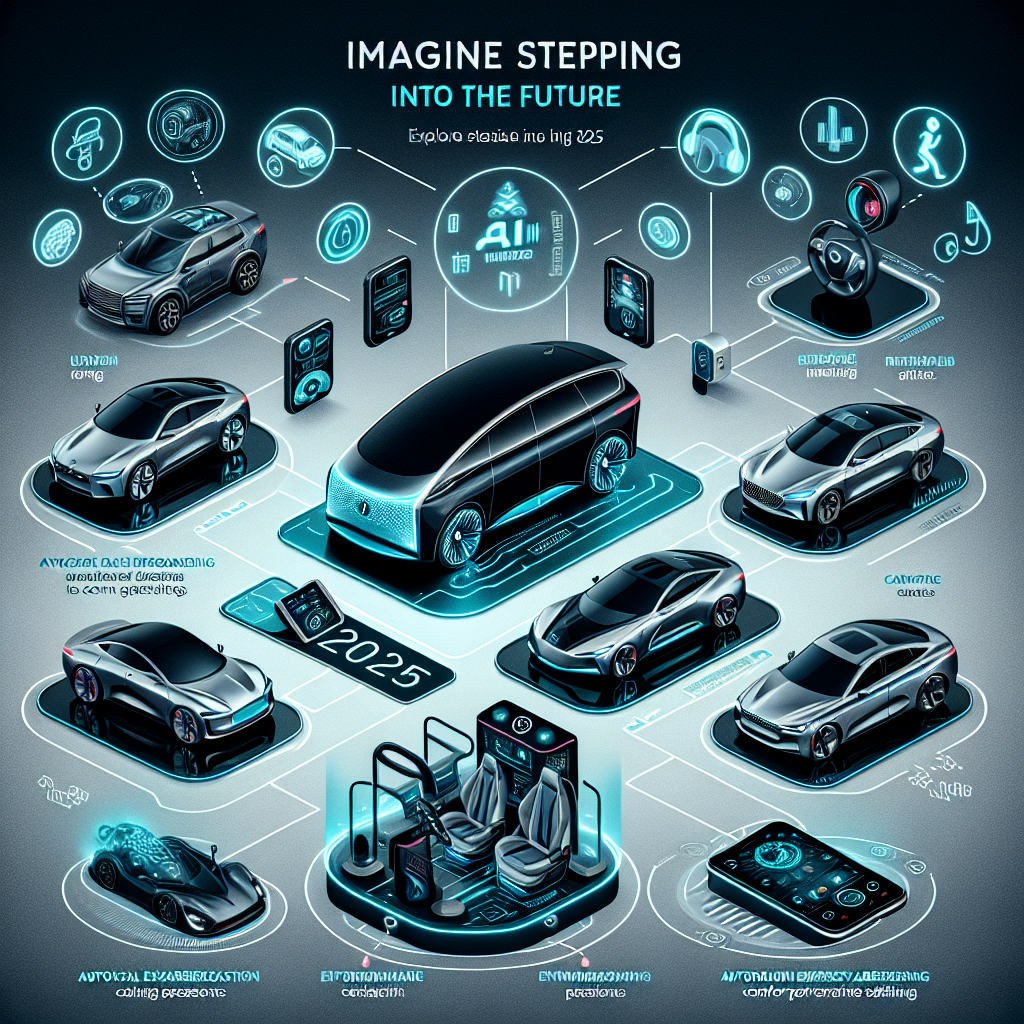AI in Car Technology: The Best Smart Features in 2025’s Top Vehicles
Introduction
In 2025, artificial intelligence (AI) has become a cornerstone of automotive technology, revolutionizing how vehicles are operated, maintained, and integrated into our daily lives. This integration of AI has not only enhanced vehicle safety but also transformed user experience, efficiency, and connectivity. The latest car models are equipped with an array of smart features that leverage advanced machine learning algorithms, sensor technologies, and data analytics, pushing the boundaries of autonomous driving, personalized in-car experiences, and energy management. These innovations reflect a significant shift towards more intelligent, adaptive, and user-focused vehicles, setting new standards in the automotive industry.
AI in Car Technology: The Best Smart Features in 2025’s Top Vehicles
AI in Car Technology: The Best Smart Features in 2025’s Top Vehicles
As we move further into the decade, the integration of Artificial Intelligence (AI) in automotive technology has not only become more sophisticated but also more integral to the driving experience. In 2025, top vehicle manufacturers have unveiled a range of smart features that promise to enhance safety, efficiency, and comfort, setting new standards in the automotive industry.
One of the most significant advancements is the improvement in autonomous driving systems. These systems now utilize deep learning algorithms that can process vast amounts of data from sensors and cameras in real-time. This allows vehicles to understand complex scenarios on the road, predict the actions of other drivers and pedestrians, and make immediate decisions. For instance, some of the latest models can seamlessly navigate through city traffic and tight parking spaces without any human intervention, showcasing a level of precision and reliability that was hard to imagine just a few years ago.
Furthermore, AI has revolutionized vehicle safety features. Advanced driver-assistance systems (ADAS) are now equipped with predictive capabilities that analyze driving patterns to anticipate potential hazards. For example, if a pedestrian is detected near a crosswalk, the system can predict their movement and adjust the vehicle’s speed accordingly or alert the driver with visual and auditory warnings. This proactive approach to safety not only prevents accidents but also instills greater confidence in drivers, making road travel safer for everyone involved.
In addition to safety, AI is transforming the in-car experience. Personalization features powered by AI are becoming a standard offering in luxury models. These systems learn from individual driver preferences to adjust settings such as seat position, climate control, and even the audio system volume. Over time, the car adapts to the nuances of the driver’s habits and preferences, creating a highly personalized driving environment. This kind of tailored experience adds a new layer of comfort and convenience, making each journey more enjoyable.
Energy efficiency is another area where AI is making a significant impact. Electric vehicles (EVs), which are gaining popularity due to environmental concerns, now feature smart energy management systems that optimize battery use. AI algorithms analyze the vehicle’s usage patterns and the surrounding conditions to manage battery life effectively. For instance, during long trips, the system can recommend the most energy-efficient routes or automatically adjust the car’s speed to extend battery life. This not only enhances the performance of EVs but also contributes to sustainability.
Lastly, connectivity features have also seen remarkable improvements. Vehicles are now capable of communicating with each other and with road infrastructure through the Internet of Things (IoT). This connectivity enables cars to share information about road conditions, traffic congestion, and even weather updates in real-time. Such interconnectedness not only improves navigation but also aids in managing traffic flow more efficiently, reducing congestion and enhancing overall road safety.
As we look to the future, it is clear that AI is set to continue its transformative impact on the automotive industry. The smart features in 2025’s top vehicles not only demonstrate the current capabilities of AI but also hint at its potential to redefine our relationship with cars. With each advancement, we move closer to a world where vehicles are not merely a means of transportation but a sophisticated, adaptive technology that promises safety, efficiency, and personalization.
Conclusion
By 2025, AI in car technology has significantly enhanced vehicle functionality, safety, and user experience. Top vehicles are equipped with advanced driver-assistance systems (ADAS) such as autonomous driving capabilities, real-time traffic and accident avoidance systems, and personalized in-car experiences. AI-driven predictive maintenance, voice-controlled interfaces, and seamless integration with smart devices have become standard, improving convenience and reducing the risk of accidents. Furthermore, AI’s role in electric vehicles has optimized battery management and charging efficiency, promoting sustainability. Overall, AI has transformed cars into highly intelligent, adaptive, and safer modes of transportation, setting a new standard in the automotive industry.



